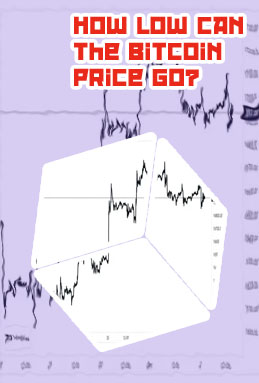
Bitcoin (BTC) Could Crash 50% From 2023 High Before Next Year’s Halving, Says Analyst Benjamin Cowen
The price of bitcoin has experienced sharp perturbations since its inception. Figure 1 shows a time series plot of bitcoin's price (in USD) as well as order flow imbalance for our sample period (April 1, 2013 until January 15, 2023). We describe our sample data and sample range more in Sect. 3. Bitcoin crash? “In the world of cryptocurrency, many things are not what they seem,” said Ben McKenzie, a TV actor and former star in “The O.C.” who began writing about cryptocurrency during the pandemic and has become another one of the industry’s best-known critics. “Molly shines a light through darkness and presents it for the world to see.”
Bitcoin comes big
After their peak, the crypto market began to fall with the rest of the market. By the end of 2021, Bitcoin had fallen nearly 30% from its peak down to $47,686.81 and Ethereum had fallen about 23% to $3,769.70. In December 2022, The Washington Post reported "the sense that the crypto bubble has definitively popped, taking with it billions of dollars of investments made by regular people, pension funds, venture capitalists, and traditional companies". What Is Bitcoin? When Bitcoin was created by Satoshi Nakamoto, he set a limit for how many Bitcoins can be made — 21 million. This means that, for as long as Bitcoin exists, there can only ever be 21 million — no more. So, if the popularity of Bitcoin increases, so will the Bitcoin price predictions.When Will Bitcoin Go Back Up?
While analysts expect the potential approval of spot bitcoin ETFs to create a much larger pool of crypto investors, future volumes could go either way, Carey added. That could either boost or undermine bitcoin’s value. Update My Cookie Consent You can find a wide range of predictions on crypto blogs, Twitter accounts and YouTube pages. But you won't see many professional analysts setting price targets like they do for stocks. It's just too hard: J.P. Morgan's research from 2021 showed that Bitcoin is roughly five times more volatile than equities or gold and has "little to no correlation with other major financial assets."

